The notes from this presentation by Dr. Irminne Van Dyken were taken at Dr. John McDougall’s Advanced Study Weekend. In her presentation, Dr. Van Dyken describes how you can adopt a Plant Based diet to help avoid the scalpel. You learn about the links between nutrition and some of the most common cancers that are being treated in the surgery room — and tips to reduce your chances of developing these cancers by adjusting what you eat. Dr. Van Dyken is a General and Trauma Surgeon at The Queen’s Medical Center in Hawaii.
The leading causes of death in North America are heart disease (number one), and cancer (number two cause). However, in low-income areas, the number one killer is respiratory diseases. There are significantly different causes of death if you compare causes in 1900 to causes in 2010.
In 1900, infections were a leading cause of death.
In 1900, there was a significantly lower BMI. The average for humans in 2000 is to be overweight.
This presentation will cover many different ways a plant-based diet can help you avoid these illnesses, and hence, in an operating room under the scalpel.
Notes from a presentation by Dr. Irminne Van Dyken
These are notes taken during a presentation given at the McDougall Program’s Advanced Study Weekend.
What does that mean?
- Because these notes were typed during a presentation by the noted doctor, and are being written by a “lay person”. While I did my best to make notes about what they said, these notes may not be entirely accurate. However, I will link resources (such as the peer-reviewed studies referenced within the presentation) whenever possible within the text.
- Please direct any questions you have to the speaker noted here. Their website and social channels are linked whenever possible.
- If you are currently in treatment for any condition, do not use this to change what you are doing. Do take this information to your doctor to ask questions in order to make informed medical decisions with a professional.
- You can find MORE PRESENTATION NOTES listed at this page.
- The ideas presented are those of the presenter. If I (the author) add any notes, references, or other items to refer to, I will note that they are my additions within the text.
Also please note that the linked studies have been located and linked during editing. The links were not provided during the presentation, so these are only accurate to the best of my knowledge.
Please also make sure to subscribe to our email list to be notified of our new articles as they are published.
Avoid heart disease, the cause of heart disease
Heart disease is the leading cause of death, and it is a direct result of inflammation, cellular stress, cholesterol, and plaque build-up.
Inflammation is the basis of most disease. It has four different signs: redness, heat, tumor, pain. Two of these things can be good and bad. Inflammation (redness, heat) from exercise is good. However, chronic elevation of inflammation leads to disease.
Heart disease is characterized by fatty streaks, leading to endothelial dysfunction, ultimately leading to plaques. It is even evident in children, so it’s often not a matter of how to prevent heart disease, but how to minimize what damage we already have.
Plaque buildup is particularly bad in your 40s. However, there are options for reversal. One example is Dean Ornish’s study, “A Reversal of Coronary Artery Disease”. This study involved a diet containing 10% fat, 15-20% protein, and 70-75% carbs. Cholesterol is restricted to 5mg or less per day. As a result of this study, there was an 82% regression of heart disease after 1 year. You can read more about the results of a 5 year Ornish study of heart patients following this diet here, and in greater detail here.
Esselstyn’s report “A way to reverse CAD” in the Journal of Family Practice demonstrated that three weeks following a plant-based diet may restore myocardial perfusion. And after 32 months it may be as good as a stent being placed.
In the study “Risk of hospitalization or death from ischemic heart disease among British vegetarians and nonvegetarians” by Crowe et al., vegetarians were shown to have the lowest instances of heart disease. These were large studies of almost 45,000 people in the UK.
Avoid Breast and Prostate Cancers
These are the most common cancers in women and men, respectively.
The PDF “Food Nutrition, Physical Activity and the Prevention of Cancer: A Global Perspective” discusses how an improved diet can reduce incidences of cancer by a third. The just updated 10 guidelines for cancer prevention include:
- Be as lean as possible without becoming underweight.
- Be physically active for at least 30 minutes every day. Limit sedentary habits.
- Avoid sugary drinks. Limit consumption of energy-dense foods (oils and fats).
- Eat more of a variety of vegetables, fruits, whole grains and legumes such as beans. (Only 6% of Americans get 8 servings of them a day. However, potatoes (such as fries) and orange juice were how they made up those 8 servings!)
- Limit consumption of red and processed meats.
- If consumed, limit alcohol to 1 or 2 drinks (men).
- Limit salty foods.
- Don’t use supplements to protect against cancer.
- Best for mothers to breastfeeds for up 6 mo exclusively, then other liquids and foods.
- After treatment, cancer survivors should follow the recs for cancer prevention.
Meat causing cancer has been known by science since at least 1907. The American Cancer Society Guidelines are to “Eat a healthy diet with an emphasis on plant foods.” If you stick to dietary guidelines, how much risk reduction will you experience? Read the results from a study on the cancer.org website here.
Breast cancer is stored in fat cells. To learn more about risk reduction, refer to the article by Victoria Maizes MD called “Reducing the Risk of Breast Cancer: Nutritional Strategies” and Theresa A Hastart et al. results from the Vitamins and Lifestyle (VITAL) study “Adherence to the WCRF/AICR cancer prevention recommendations and cancer-specific mortality“.
Intensive Lifestyle changes and prostate cancer was studied by Dean Ornish in 1995. Patients were switched to the Ornish diet (mentioned earlier) from the higher fat and processed Standard American Diet. After this change, cancer cell death was increased to 70% from 9%.
You can follow data-driven strategies to prevent prostate cancer. Adapted from Dr. Fuhrman
- Eat whole food plant based diet. Fresh green leafy vegetables, beans, onions, berries, seeds.
- Eat cooked tompatoes
- Yellow and oranges vegetables (source of cartenoids)
- Get folic acid from whole foods (not supplements — supplements increase cancer)
- Avoid fried foods
- Exercise at least 3 hrs per week. (61% lower chance of death from prostate cancer)
- Supplement with a conservative amount of zinc.
For more information, refer to Dr. Fuhrman’s website on G-BOMBS here.
For more information and studies on links between cancer and nutrition, and more strategies to improve your diet, see these studies:
- “Applying the Precautionary Principle to Nutrition and Cancer” by Dr. Barnard et al.
- “Bootcamp During Neoadjuvant Chemotherapy for Breast Cancer: Randomized Pilot Trial” by Rao et al.
- Also, there is a study in progress in Hawaii looking at possible links between Hula dancing and breast cancer survivorship.
Avoid Colon Cancer
There is a link between lifestyle modifications and colon cancer. See the study called “Lifestyle mods and colorectal cancer” by L. Durko et al.
Some preventative strategies include:
- Fiber rich foods. A metaanalysis of 13 studies regarding colon cancer reduced instances by 50% utilizing a high fiber diet.
- Anti-cancer phytochemicals. Polyphenols, carotenoids, terpenes, thioethers interfere with cancer intracellular signaling cascades. Leafy green vegetables, onion, garlic, citrus.
- B Vitamins – Folate. Low folate levels enhance invasiveness of colon cancer cells. Suppress loss of heterosygosity. High intake of folic acid from whole food is recommended. However, Folic acid supplements can increase the chance of colorectal cancer by 1.7 fold.
- Grapeseed extract. Grapeseed extract is a whole food. It is rich in polyphenols, mainly proanthocyanidins and may help destroy bad cells by tagging them.
- Milk Thistle. Silibinin. Can drink as whole food. It is targeting DNA mutation mechanisms, metastatic signaling, and inflammation processes and is safe.
- Turmeric.Curcumin. Exceptional antioxidative potential. Promotes apoptosis and inhibiting DNA mutations, cancer cell proliferation, metastasis, and inflammation. It has molecular targets and finding new ones every day.
Curcumin is “one of the most promising widely available chemopreventative agents that reduce colon cancer risk” and is generally safe. However, do note: 1) if have gallstones can make pain worse. Enhances contractility of the gallbladder, 2) men take it in high doses had decreased sperm motility. - Green Tea. Strong antioxidant, preventing ROS formation. Decreases expression of growth factors (IGF1 VEGF) blocking cancer cell proliferation and metastasis formation
- Physical activity. Active individuals have 24% lower risk of CRC development than those who have a sedentary lifestyle. Decreased insulin resistance, levels, decreased body mass, fat volume, chronic inflammation.
Alcohol and Tobacco
Increases chances of colon cancer. Plus it decreases the absorption of group B vitamins (B1, 2, 12, folic) which causes increased cell vulnerability to oxidative stress. Tobacco causes direct cellular damage.
Importance of the microbiome
Microbiome dictates cravings. Dictates everything in life, and is protective. Note that a Colonoscopy ruins the microbiome. We can influence the microbiome by the amount of fiber we consume, adding prebiotics to the diet (a variety), and by adding anything with insoluble fiber: whole grains, beans, starches, and vegetables. Good sources include inulin and chicory, Jerusalem artichokes, and leeks. You should aim for 40-50 grams per day.
See the study called: “Diet rapidly and reproducibly alters the human gut microbiome” by David et al. This demonstrated how the microbiome can change its structure in as little as 48 hours. So: crappy food for 48 hours can screw it up – it doesn’t take much.
Results:
- Plant based subjects healthier microbiome
- Animal based subjects unhealthy balance: bacteria fermented into cancer causing compounds in liver and colon, and produced a compound that promotes gut fermentation.
Also important to consider is the Trimethylamine N-oxide (TMAO) chemical, also involved in colon cancer. TMAO is linked to the consumption of animal products (as noted above), particularly red meat and eggs. TMAO is considered a direct carcinogen: there is no dispute on the link between red meat and colon cancer.
Plausible Biological Mechanisms. Heterocyclic amines released at high temps. Endrogynic.
(Editor side note — I missed notes on this topic, however, I do recommend digging into some research regarding this. Here is one other interesting article I found: “Microbiome May Predict Colon Cancer Tumor Mutational Status” (link, and I definitely recommend reading more about TMAO – look for recent research: 2015 and later.).
Avoid obesity
Obesity is clearly linked to cancer.
Nonalcoholic steatohepatitis (NASH): non-alcoholic liver cells are replaced by fat cells. Fibrosis leads to inflammation and leads to liver failure.
2050 leading cause of liver transplants will be due to NASH because people are becoming so obese.
Have more fiber in your diet
Increased fiber lowers instances of cancers, obesity, heart, diverticulitis, diabetes.
Other benefits:
More information from her video on YouTube
Follow Irminne Van Dyken
You can find Irminne Van Dyken’s website here.
Follow Dr. Van Dyken’s plant based health and wellness channels on Facebook, Instagram, YouTube and Twitter.
Facebook
Instagram
YouTube
Twitter
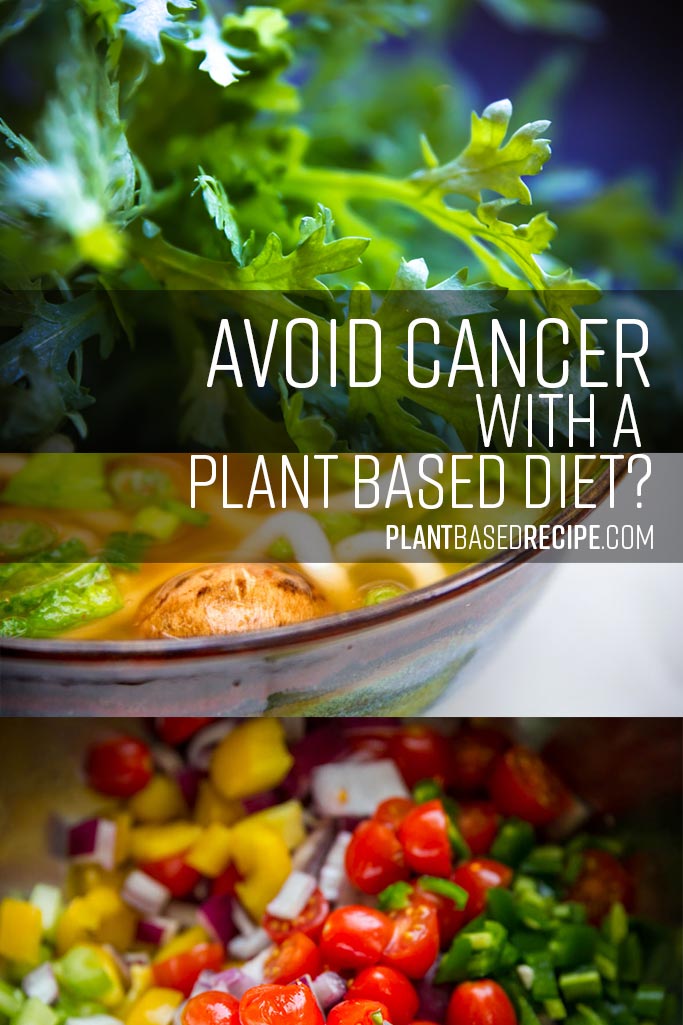
- Pad Thai Protein Salad recipe from The Plant-Based Cookbook + Book Review and Giveaway! - December 9, 2020
- Lemon ginger bowl sauce with miso recipe (Oil free, no added sodium) - November 30, 2020
- New vegan bacon at Whole Foods Market – 300 store roll-out - November 15, 2020

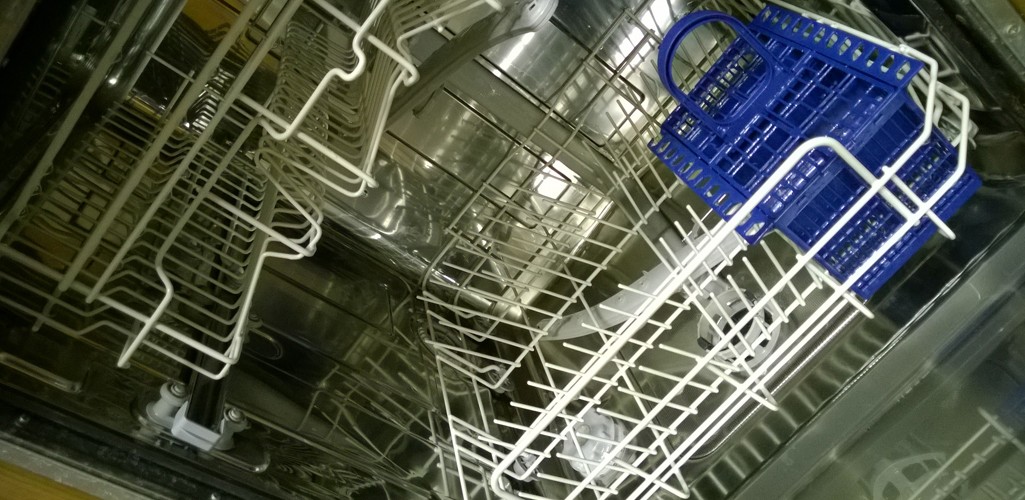
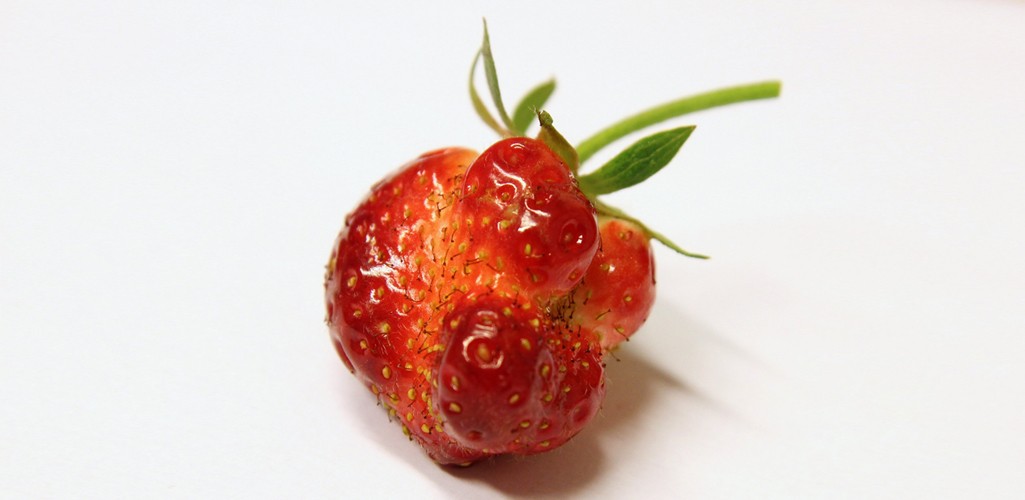
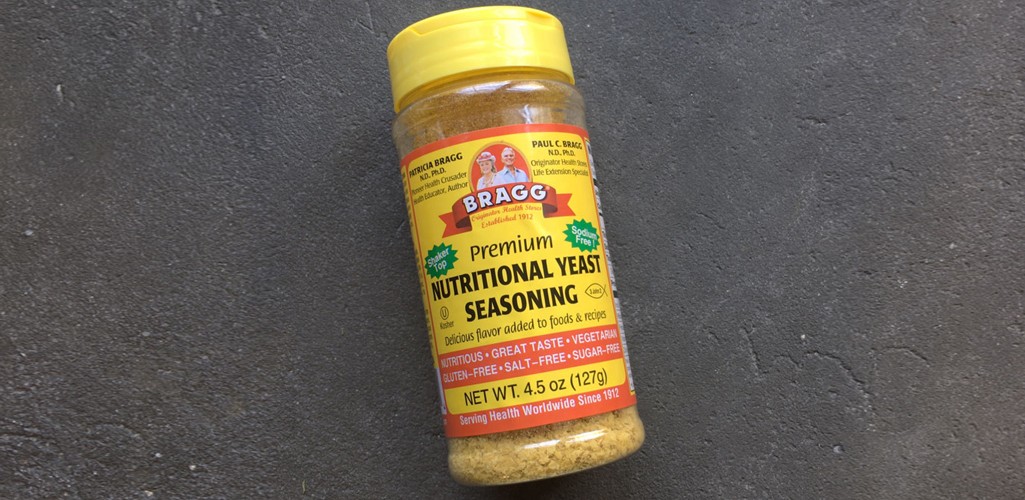
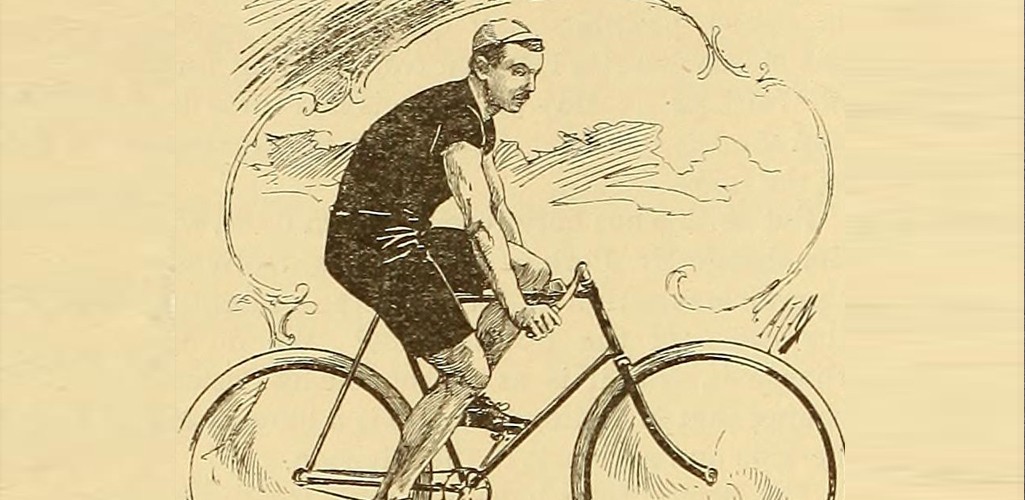

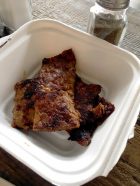
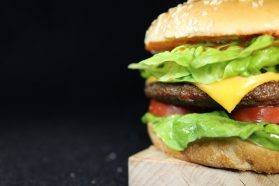
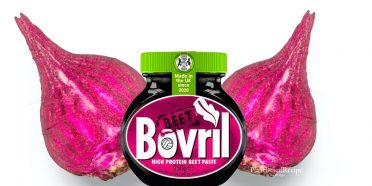


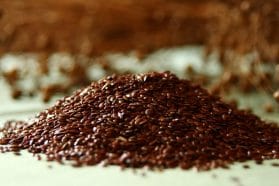
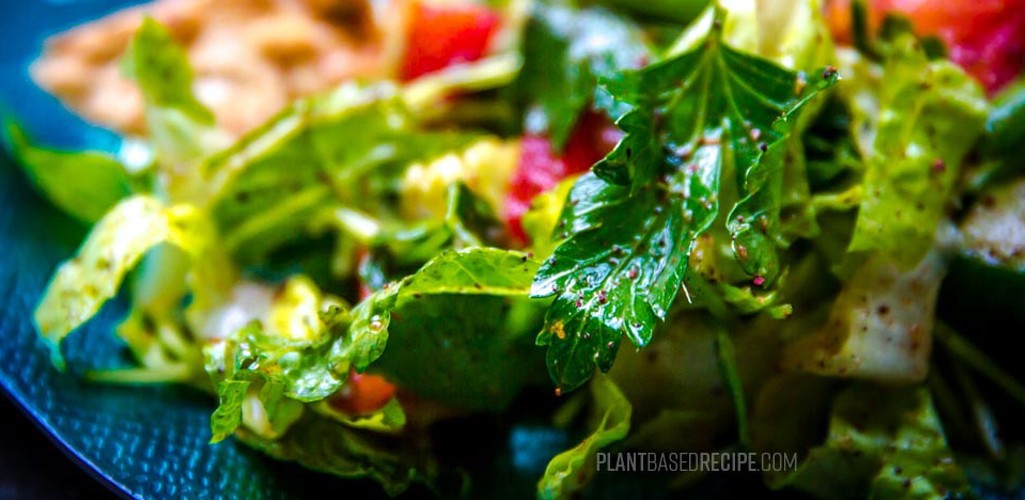


Bret Manas
Up up up, good